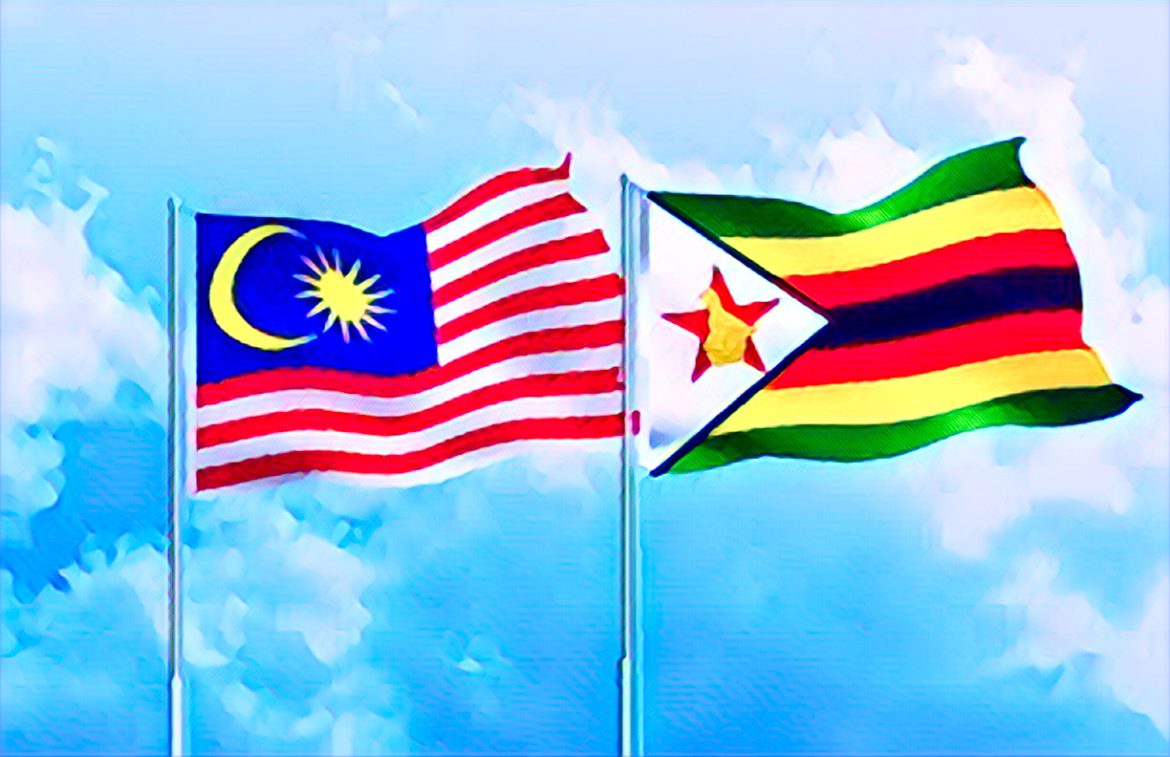KEY POINTS
-
Zimbabwe is working to deepen its diplomatic and trade relations with Malaysia, focusing on agriculture, technology, and business.
-
The strengthening of ties comes after the death of former Malaysian Prime Minister Abdullah Ahmad Badawi, who had been a strong advocate for Zimbabwe-Malaysia relations.
-
Both Zimbabwe and Malaysia are committed to continuing the legacy of cooperation, especially in areas of trade, education, and investment.
Zimbabwe has reaffirmed its commitment to strengthening its ties with Malaysia, focusing on deepening bilateral relations in trade, agriculture, technology, and business ventures.
Herald reports that the government in Harare is particularly keen on raising the trade profile between the two nations as part of efforts to foster a closer and more productive partnership.
Speaking in Harare after signing a book of condolences following the death of former Malaysian Prime Minister Abdullah Ahmad Badawi, Foreign Affairs and International Trade Minister Professor Amon Murwira emphasized the importance of the longstanding relationship between the two countries. “Zimbabwe and Malaysia have an excellent relationship. The two countries have exchanged a lot in terms of human capital development, and now we are focused on deepening our ties by raising the trade profile between our sister nations,” said Professor Murwira.
He expressed deep sorrow at the passing of the former Malaysian leader, describing it as a significant loss to both countries. “It is with deep sadness that we learned about the death of former Prime Minister Abdullah Ahmad Badawi. It is out of this deep respect that we came to sign the book of condolences on behalf of the Government and the people of Zimbabwe. We are truly sorry for the loss of a statesman and a friend of Zimbabwe,” Murwira continued. He further committed to keeping Badawi’s legacy alive by continuing to enhance the friendly and productive relations between the two countries.
The death of Abdullah Ahmad Badawi, a prominent Malaysian politician who served as Prime Minister from 2003 to 2009, occurred on April 14, 2025, following complications from multi-organ failure. His health had been deteriorating after a previous hospitalization in 2024 due to spontaneous pneumothorax.
Badawi’s career spanned decades, and he played a key role in Malaysia’s international relations, including strengthening ties with African countries such as Zimbabwe.
Malaysian Chargé D’Affaires in Zimbabwe, Mr. Aniff M. Fauzi, also paid tribute to the late Prime Minister, highlighting the history of cooperation between the two nations. “Our countries have had a lot of cooperation, particularly in international forums. The bilateral relations have been productive, with a focus now on enhancing trade, education, social matters, and investment,” Mr. Fauzi remarked.
Zimbabwe’s efforts to boost ties with Malaysia are seen as part of a broader strategy to attract foreign investment, foster trade, and explore new opportunities for cooperation in sectors such as agriculture and technology. The bilateral relations between the two nations date back to the time of Zimbabwe’s liberation struggle, where Malaysia played an important role in offering support on various international platforms.
Historical solidarity and modern economic ambitions shape renewed partnership
Malaysian Chargé d’Affaires Aniff M. Fauzi highlighted the decades-long bond between the nations, noting Malaysia’s support for Zimbabwe’s independence movement in the 1970s. “Our cooperation spans international forums, but the focus now is on trade, education, and investment,” Fauzi stated. Current discussions include Malaysian investments in Zimbabwe’s agricultural sector, particularly in palm oil production and agritech, to combat food insecurity exacerbated by climate change.
Zimbabwe, grappling with inflation and foreign currency shortages, views Malaysia as a strategic partner to access Southeast Asian markets. In 2024, bilateral trade totaled $12 million, largely skewed toward Malaysian exports of electronics and machinery. Zimbabwe seeks to balance this by exporting tobacco, citrus, and lithium, a critical mineral for Malaysia’s growing electric vehicle industry.
The diplomatic push follows the April 14 death of Badawi, who championed South-South cooperation during his tenure (2003–2009). Badawi’s administration facilitated scholarships for over 200 Zimbabwean students in Malaysian universities and supported infrastructure projects. His death from multi-organ failure at 85 has reignited calls to revive stalled joint initiatives, including a proposed $50 million agro-processing plant in Mashonaland West.
Economic analysts caution that Zimbabwe must address governance concerns to attract sustained investment. “Malaysian firms are keen but wary of currency instability and policy shifts,” said Harare-based economist Tinashe Murapata. Meanwhile, Prof Murwira confirmed plans for a Malaysian trade delegation to visit Zimbabwe in late 2025, signaling renewed momentum.


